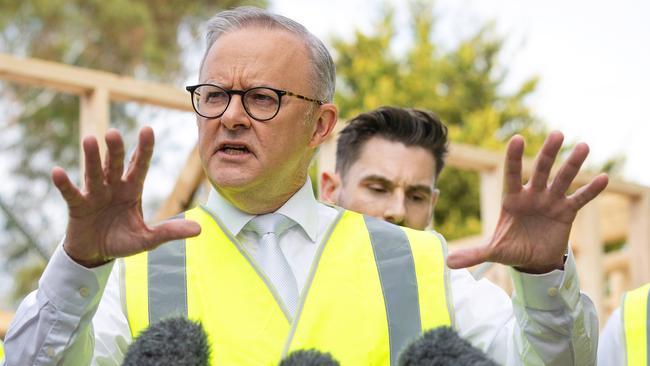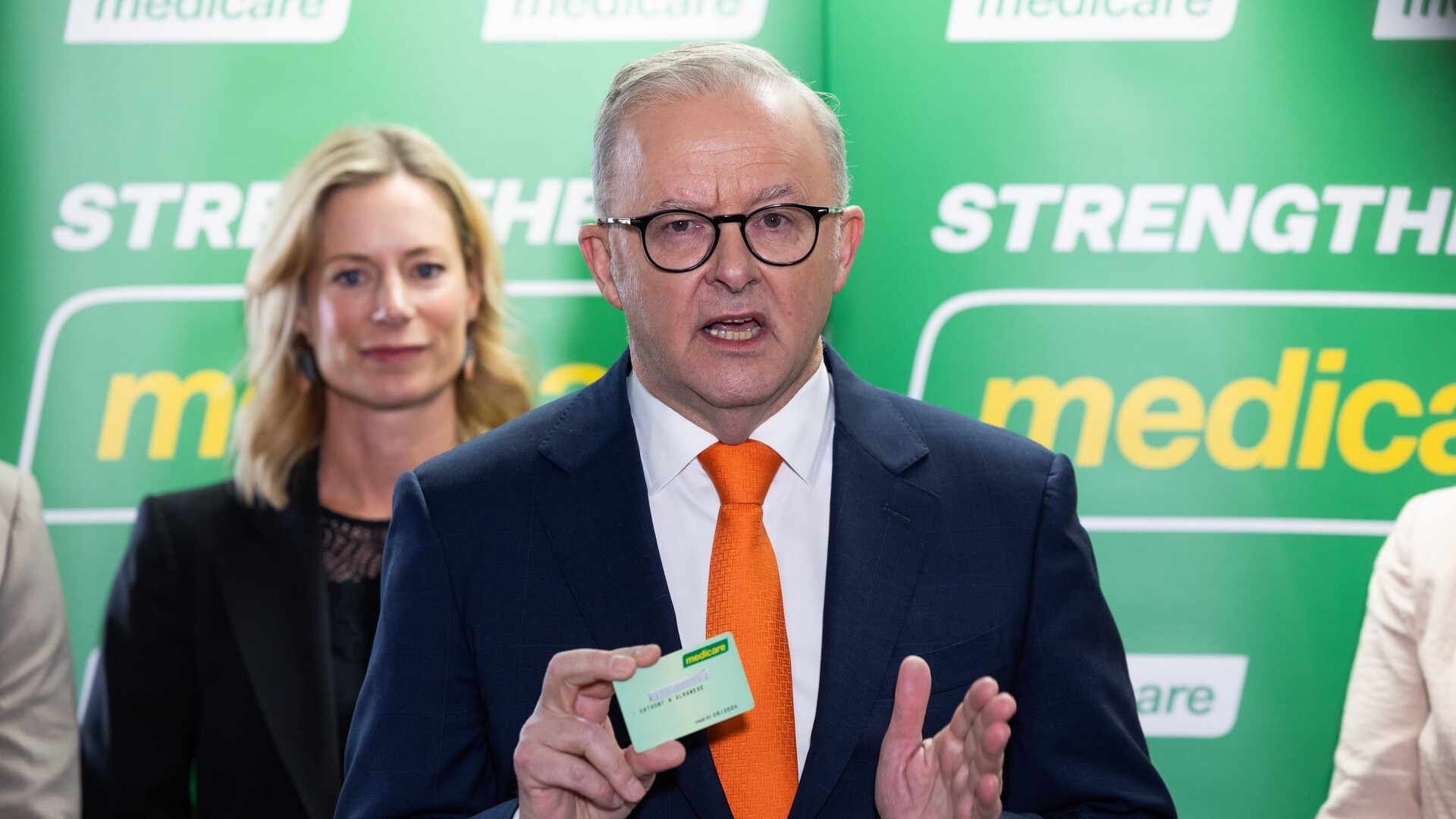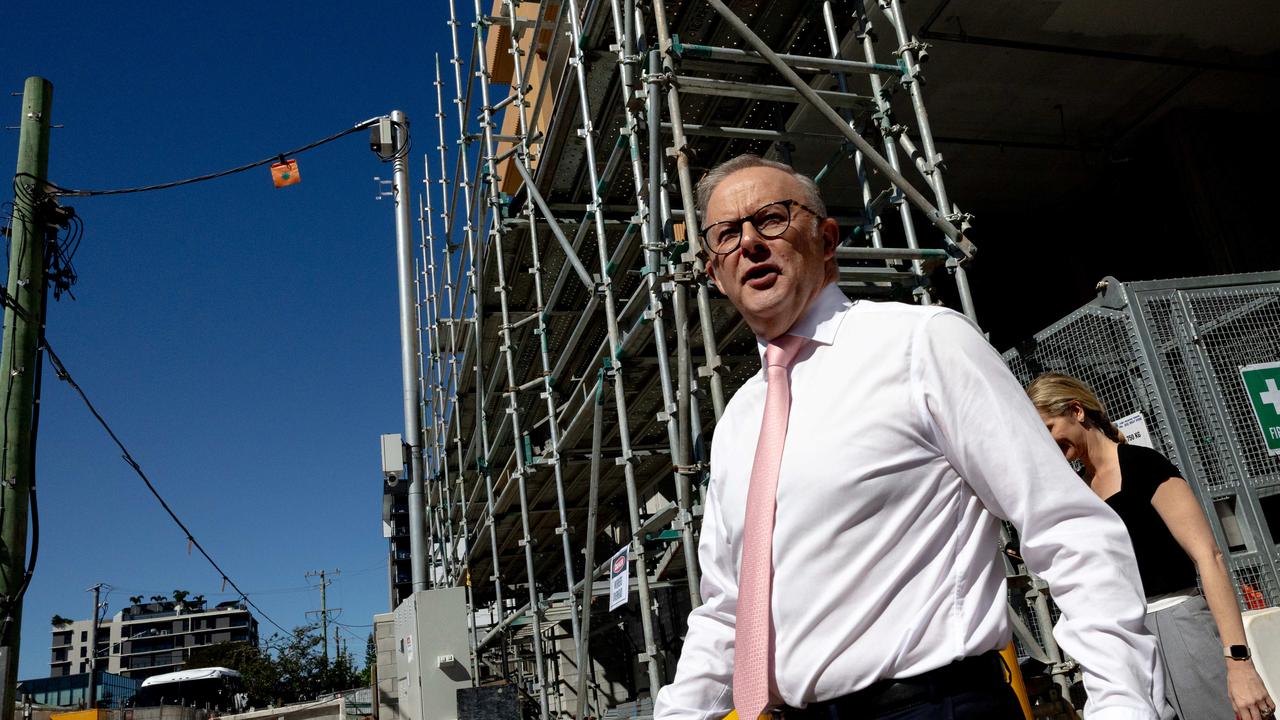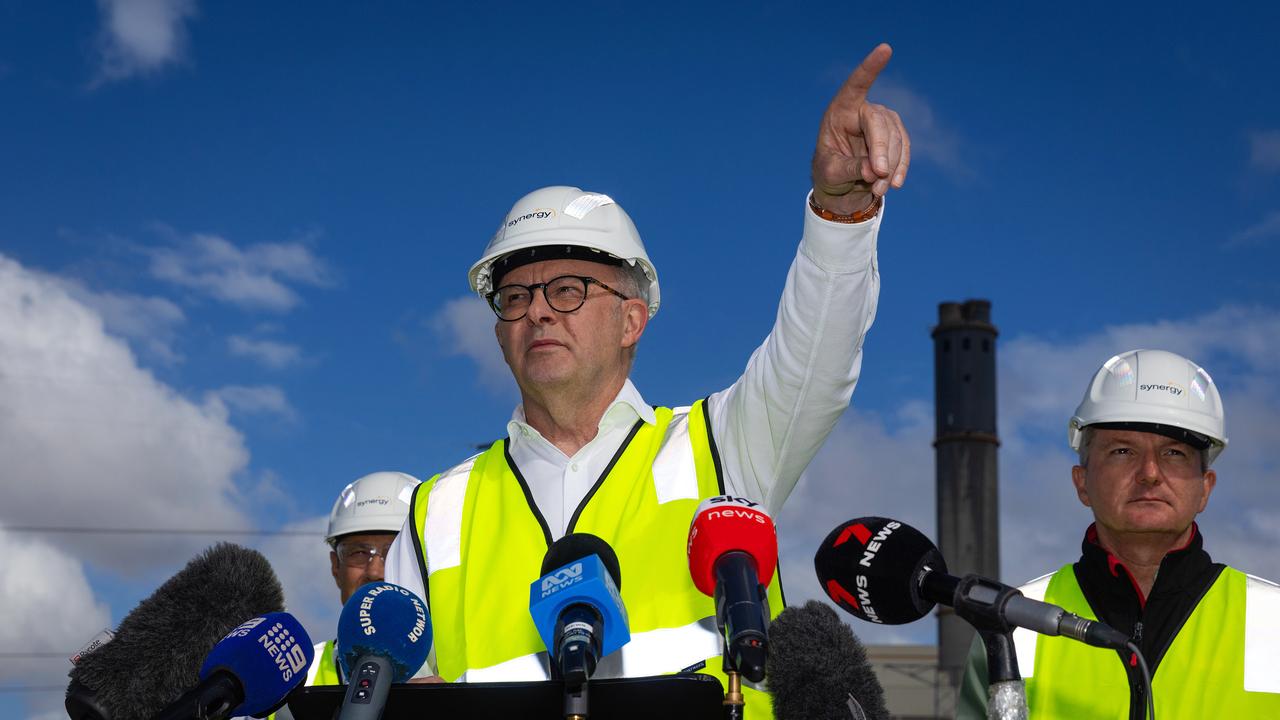Election 2025: Anthony Albanese rejects doctors’ concerns about his bulk-billing policy
Anthony Albanese hit back at criticism from doctors that Labor’s flagship $8.5bn election policy promoting bulk-billing won’t guarantee that all GP consultations will be free.

Anthony Albanese has hit back at doctors’ warnings that Labor’s flagship $8.5bn election policy promoting bulk-billing won’t guarantee that all GP consultations will be free, declaring these concerns were “completely contradicted” by what he has heard during the campaign.
After some GPs and medical leaders told patients not to expect to be able to see a doctor with only their Medicare card under Labor’s policy to increase bulk-billing rates, the Prime Minister rejected their concerns, saying he was hearing different reports “on the ground”.
The Australian on Tuesday reported that peak doctors’ bodies had cautioned that not all patients would be bulk-billed under the policy and had questioned whether most practices would sign up to the scheme.
The Coalition has vowed to match Labor’s election promise to triple the bulk-billing incentive if a GP decides to use it, which is projected to increase bulk-billing rates to nine out of 10 consultations within five years.
Under pressure over the effectiveness of his Urgent Care Clinics on reducing wait times in emergency departments and the Bulk Billing Practice Incentive Program, Mr Albanese on Wednesday said he had consistently heard that both policies were making a difference.
“You know what my evidence is? Talking to people, talking to the punters, 1.3 million of them,” he said. “Whether it is in this campaign(or) Bridgewater (in SA) yesterday. You have two reports today about Urgent Care Clinics and about our bulk-billing incentive that are completely contradicted by … talking to people on the ground.”
Campaigning in Melbourne’s eastern suburbs on Wednesday, where he is hoping to retain the seat of Aston, Mr Albanese said doctors, health ministers and parents had told him that Urgent Care Clinics were taking pressure off emergency departments.

“Same as our bulk-billing incentive,” he said. “We heard yesterday from a doctor who stood up at that rather large clinic there at Bridgewater (and) said, as a result of our policies, that the clinic will be 100 per cent bulk-billed.”
Opposition health spokeswoman Anne Ruston said the Coalition was committed to ensuring people had “timely and affordable access” to primary care but did not let on whether the opposition would reconsider matching Labor’s bulk-billing policy.
“We need to see bulk-billing restored, which is why we have committed a historic $9bn into Medicare,” Senator Ruston said. “Under the Coalition, bulk-billing was more than 88 per cent. Under Labor, it has fallen to 77 per cent.”
Royal Australian College of General Practitioners president Michael Wright said the $8.5bn policy was “well overdue and very welcome” but some GPs held concerns about the uptake of the package. “We have heard from our members that they are concerned about the structure of the funding commitment, and we know GPs will only change their billing practices if they are sure it is in the long-term interests of their patients and their practice’s viability,” he said.
“Both sides of politics have more work to do to convince GPs that their funding packages will deliver the benefits they have promised for their patients.”

Australian Medical Association president Danielle McMullen said while the policy would address affordability issues, the “reality is that every practice is different” and structural reforms were needed. “Whether practices choose to join the new Bulk Billing Practice Incentive Program will depend on their own assessment of practice costs,” she said.
Doctors Reform Society secretary Peter Davoren also called for structural reforms to bulk-billing and Medicare, saying the current fee at point of service model was no longer fit for purpose because of the rising costs of running a general practice.
“If you try to fund all general practice, or all healthcare, by the fee for service model, then the costs will just keep going up and up and up, and that’s unsustainable,” he said. “It has been unsustainable over the last 20 years, and there’s no reason to expect it can be sustainable now.
“Hence the need to consider other ways. Our organisation believes there are other ways of funding healthcare, and this is not just primary care but also non-specialist care outside of general practice.”






To join the conversation, please log in. Don't have an account? Register
Join the conversation, you are commenting as Logout